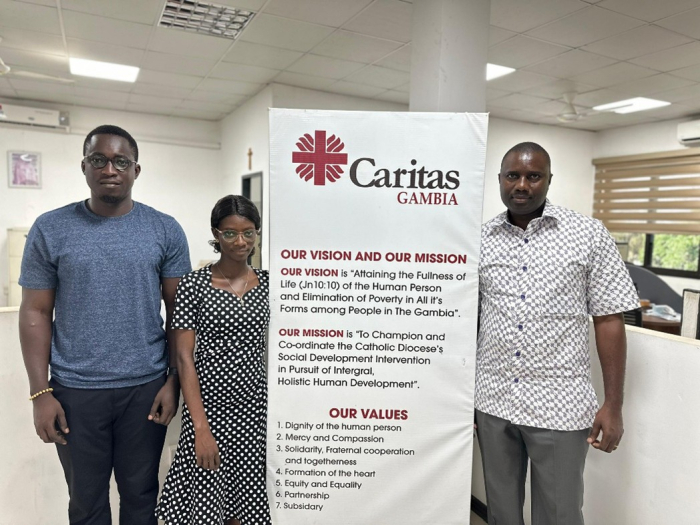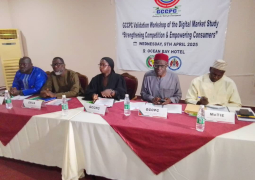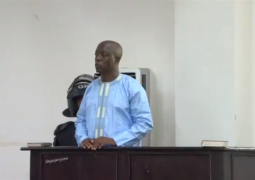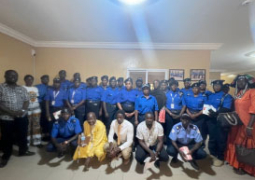
The organisation also intervenes with substantial support in sanitation and water supply, by drilling wells and boreholes and providing potable water to schools, communities and women’s gardens, which has contributed to improving agricultural productivity, hygiene and women empowerment over a period of almost five decades.
In an exclusive interview with The Point newspaper, Caritas Gambia Director, Francis D. Mendy, explained the organisation’s interventions in human development since its establishment in The Gambia in 1977 and equally in the development efforts of the Gambia government by providing services in areas where they are needed.
Touching on various perspectives of their support, Director Mendy informed that Caritas is present in 162 countries around the world, 46 in Africa.
“We have Caritas Africa which is a member of Caritas International, encompassing all the other continents,” he said. “As a charity of the Catholic Church, Caritas is a Latin word, which simply means love for charity. It is love in action.”
Director Mendy advanced that Caritas Gambia has been in collaboration with different ministries while also working with the Catholic Relief Services (CRS) together with the National Malaria Control Program, thereby providing malaria prevention services for those in the Lower River Region, Central River Region-South and Upper River Region-South.
Additionally, he said, Caritas Gambia also runs a mobile clinic, which is present in communities such as Kitty, Kuloro, Suma Kunda, Manduar and Kunkujang Mariama operating on daily basis.
The charity’s clinic in Fula Bantang, Central River Region, also serves 35 communities around that settlement and some border communities.
In education, he stated that Caritas Gambia further works closely with the Ministry of Basic and Secondary Education (MoBSE), as they collaborate with the Catholic Relief Services (CRS) in providing school meals in 186 schools, including the Madrassas, across the country, essentially having provided over 12.8 million meals since it started.
Speaking further, Mendy revealed that Caritas Gambia also has a bicycle program, which has been providing bicycles to school children since 2018, with a distribution of over 7000 bicycles to Gambian children so far.
Discussing further the support Caritas renders to Gambians repatriated from European countries, Mr Mendy said they have a project for young Gambians repatriated from European countries as the country has registered thousands of repatriated Gambians.
He said these are people who lived offshore and have exhausted all legal means of living and are working illegally in those European countries and ear-marked for repatriation.
Denis T. Gomez, Caritas project manager in charge of Return and Reintegration, stated that Caritas supports returnees by picking them up as they land at the Banjul International Airport and providing them with post-arrival counselling.
At this point, Mr Gomez said Caritas assesses returnees’ basic needs including medical, referral, or any kind of support that has to do with family tracing or legal support.
Depending on the person’s type of return, he clarifies, Caritas provides support to both voluntary returnees and those forcefully repatriated, with different support in Euros (not necessarily cash) with diligent counselling for investment in their choice of engagement or businesses in the process of their reintegration.
Read Other Articles In National News

Young woman gets supports of 10 African countries including Gambia
Aug 23, 2023, 11:51 AM




